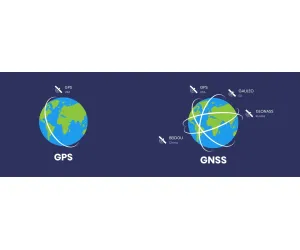In today's fast-paced business environment, effective time management is crucial, especially for companies that operate a fleet of vehicles. Fleet tracking solutions have revolutionized the way businesses monitor and manage their mobile assets, leading to significant improvements in efficiency and productivity.
This article delves into the various ways fleet tracking systems help businesses save time and streamline operations.
Real-Time Monitoring for Enhanced Visibility
One of the primary benefits of fleet tracking solutions is the ability to monitor vehicles in real-time. With GPS-enabled tracking, businesses can view the exact location and status of each vehicle on a digital map. This immediate access to information eliminates the need for frequent driver check-ins, reducing unnecessary phone calls and enhancing coordination.
For instance, if a customer inquires about the status of a delivery, dispatchers can quickly provide accurate updates without contacting the driver, thereby saving time and improving customer satisfaction.
Route Optimization for Efficient Travel
Fleet tracking systems often come equipped with intelligent route optimization features that analyze traffic patterns, road conditions, and other relevant factors. By selecting the most efficient routes, businesses can:
- Reduce travel time
- Lower fuel consumption
- Improve delivery times and customer satisfaction
Optimized routing ensures smoother operations and contributes to significant time and cost savings.
Efficient Dispatching for Quicker Response Times
Effective dispatching is critical for timely deliveries and service appointments. Fleet tracking solutions allow dispatchers to assign tasks based on real-time vehicle locations, ensuring that:
- The nearest available driver is deployed
- Response times are faster
- Overall operational efficiency is increased
By streamlining the dispatching process, businesses can reduce delays and enhance productivity, ensuring that drivers reach their destinations quickly and efficiently.
Automated Maintenance Alerts to Prevent Downtime
Unexpected vehicle breakdowns can be major time wasters. Fleet tracking systems include maintenance alerts that notify managers when a vehicle requires servicing or when potential issues arise.
With proactive maintenance scheduling, businesses can:
- Reduce unexpected breakdowns
- Minimize downtime
- Save time on emergency repairs
By keeping vehicles in optimal condition, businesses avoid disruptions and maintain smooth operations, preventing costly delays caused by mechanical failures.
Improved Driver Accountability and Productivity
Fleet tracking solutions provide valuable insights into driver behavior, such as:
- Speeding habits
- Idle time
- Route deviations
Monitoring this data promotes accountability and encourages responsible driving. Drivers who know they are being tracked tend to adhere to schedules more strictly, reducing wasted time and increasing overall efficiency. Additionally, by identifying areas where drivers may need additional training or support, businesses can implement targeted interventions to further enhance productivity.
Enhanced Customer Service
With real-time tracking and efficient dispatching, businesses can provide customers with accurate delivery times and promptly address any service-related issues. This level of transparency and responsiveness enhances customer satisfaction and can lead to increased customer loyalty.
For example, if a customer calls to inquire about the status of a service appointment, the dispatcher can quickly provide an accurate ETA based on real-time data, eliminating the need for follow-up calls and reducing uncertainty.
Reduction in Administrative Tasks
Automated reporting features in fleet tracking systems can significantly reduce the time spent on administrative tasks. Some key benefits include:
- Automated timecard reporting for payroll accuracy
- Digital logbooks that replace manual record-keeping
- Comprehensive vehicle usage reports for data-driven decisions
This automation allows administrative staff to focus on more strategic tasks, further contributing to overall business efficiency.
Fuel Consumption Monitoring
Monitoring fuel consumption is another critical aspect of fleet management. Fleet tracking systems can provide detailed reports on fuel usage, allowing businesses to identify inefficiencies and implement strategies to reduce fuel costs.
By analyzing data on idling times and driving behaviors, companies can develop targeted initiatives to promote fuel-efficient driving practices among their drivers.
Geofencing for Enhanced Security
Geofencing is a feature that allows businesses to set virtual boundaries for their vehicles. If a vehicle crosses these predefined boundaries, the system sends an alert to the manager.
This feature enhances security by:
- Preventing unauthorized use of vehicles
- Reducing the risk of theft
- Enabling quick recovery of stolen assets
By maintaining better control over fleet movements, businesses save valuable time that would otherwise be spent on locating lost or misused vehicles.
Data-Driven Decision Making
The data collected by fleet tracking systems provides valuable insights that can inform strategic decision-making. By analyzing trends in vehicle usage, maintenance needs, and driver performance, businesses can make informed decisions that enhance efficiency and productivity.
For instance, data analysis might reveal that certain routes consistently lead to delays, prompting a reevaluation of routing strategies. The ability to make adjustments based on real-time data helps businesses save time and improve overall operations.
Conclusion
In today's competitive business landscape, adopting innovative solutions is crucial for staying ahead. Fleet tracking not only saves time but also enhances overall fleet efficiency through:
- Real-time visibility
- Route optimization
- Smarter dispatching
- Proactive maintenance alerts
- Greater driver accountability
- Improved customer service
By investing in a fleet tracking solution, businesses can achieve significant time and cost savings, making it a strategic move for long-term success. The ability to optimize operations, enhance driver productivity, and reduce inefficiencies positions companies to operate more smoothly and remain competitive in the marketplace.
Frequently Asked Questions (FAQs)
- How does fleet tracking improve efficiency?
Fleet tracking improves efficiency by providing real-time location updates, optimizing routes, reducing idle time, improving dispatching, and ensuring vehicles are maintained properly to minimize breakdowns and delays. - What industries benefit the most from fleet tracking?
Industries that rely on transportation, delivery services, logistics, construction, field services, and public transportation benefit significantly from fleet tracking solutions. - Can fleet tracking help reduce operational costs?
Yes. Fleet tracking helps reduce fuel costs, maintenance expenses, administrative tasks, and inefficiencies, ultimately leading to substantial savings in operational costs. - Is fleet tracking legal, and does it violate privacy?
Fleet tracking is legal as long as businesses inform employees that company-owned vehicles are being monitored. It is designed to improve efficiency, safety, and accountability rather than infringe on personal privacy. - How does fleet tracking help with vehicle maintenance?
Fleet tracking solutions include automated maintenance alerts based on mileage, engine performance, and diagnostic data. This helps businesses schedule preventive maintenance, reducing the risk of unexpected breakdowns and downtime. - Can fleet tracking improve driver behavior?
Yes. By monitoring driving habits such as speeding, hard braking, and idling time, businesses can encourage safer driving practices, reduce accidents, and promote responsible fuel consumption. - How easy is it to implement a fleet tracking system?
Modern fleet tracking solutions are user-friendly and can be implemented with minimal setup. Most systems include mobile and web applications for easy access to data and reports.




